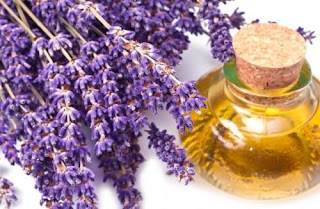Lavender essential oil is one of the most popular and versatile oils used in aromatherapy and natural skincare. Extracted from the flowers of the Lavandula angustifolia plant, this fragrant oil is known for its soothing properties and wide range of therapeutic benefits.
Lavender oil is believed to support everything from reducing stress and anxiety to treating skin irritations, acne, hair loss, and even minor infections. Whether used topically, in a diffuser, or as part of your hair care routine, lavender oil is a natural solution with powerful effects.
What is Lavender Essential Oil?
Lavender oil is a concentrated extract made by steam distilling the flowering tops of the lavender plant. It has a fresh, floral aroma and contains key compounds like linalool and linalyl acetate, which are responsible for its calming, anti-inflammatory, and antimicrobial effects.
Lavender Oil Benefits for Skin
Lavender essential oil offers numerous skin benefits thanks to its antibacterial, anti-inflammatory, and antioxidant properties. Here’s how it can enhance your skincare routine:
1. Fights Acne Naturally
Lavender oil kills acne-causing bacteria and reduces inflammation. It is non-comedogenic, meaning it does not clog pores. Combine lavender oil with witch hazel for a gentle toner or mix with tea tree or argan oil for a spot treatment to clear breakouts.
2. Helps Soothe Eczema and Dry Skin
Research shows that lavender oil can help relieve eczema symptoms by eliminating harmful bacteria like Staphylococcus aureus and reducing inflammation. Regular use may reduce itching, redness, and flare-ups.
3. Reduces Inflammation
Lavender oil is effective in calming inflamed skin and promoting healing. Studies have shown that it can significantly reduce inflammation in wounds and skin ulcers, accelerating recovery and reducing discomfort.
4. Brightens Skin and Reduces Discoloration
Lavender oil may help improve skin tone by reducing redness and uneven pigmentation. Although more research is needed, many people use it to improve overall complexion and skin clarity.
5. Smooths Fine Lines and Wrinkles
With a rich supply of antioxidants, lavender oil helps neutralize free radicals that cause premature aging. This may minimize the appearance of fine lines and wrinkles, especially when used regularly with a carrier oil.
6. Promotes Healing and Reduces Scars
Lavender oil supports skin regeneration by stimulating tissue growth. Studies have shown it may be effective in minimizing scar formation and improving the appearance of skin after injury.
How to Use Lavender Oil for Skin
To use lavender essential oil for your skin, always dilute it with a carrier oil such as coconut oil, jojoba oil, or almond oil. After cleansing your face, apply the diluted oil using gentle circular motions. For a natural toner, mix two drops of lavender oil with a teaspoon of witch hazel and apply it with a cotton pad.
Lavender Oil Benefits for Hair
Lavender oil is also beneficial for hair growth, scalp health, and overall hair strength. It can help address common hair issues such as dandruff, breakage, and thinning.
1. Stimulates Hair Growth
A study from 1998 found that a blend of essential oils including lavender helped treat alopecia areata, a condition that causes hair loss. More recent animal studies have shown that lavender oil can significantly increase the number of hair follicles and follicle depth, suggesting enhanced hair growth.
2. Combats Dandruff and Scalp Inflammation
Lavender oil’s antimicrobial and anti-inflammatory properties help reduce scalp infections, itchiness, and flakiness. It can also improve circulation in the scalp, promoting healthier, stronger hair from the root.
How to Use Lavender Oil for Hair
To maximize the benefits of lavender oil for your hair, massage it directly into your scalp.
Here’s how:
-
Mix lavender essential oil with a carrier oil like coconut or jojoba oil in equal parts.
-
Apply the mixture to your scalp after a bath or shower when your pores are open.
-
Massage gently and let it sit for 5 to 10 minutes before rinsing.
-
For deeper treatment, leave the oil on overnight and rinse in the morning.
Using this method regularly can help stimulate hair growth, soothe the scalp, and give your hair a healthy shine while allowing you to enjoy lavender’s calming aroma.
Final Thoughts
Lavender essential oil is a versatile and effective addition to any natural beauty and wellness routine. From promoting clear, glowing skin to encouraging hair growth and reducing stress, it offers holistic benefits that are backed by research and centuries of use.
Whether you're using it in your skincare routine, for scalp massages, or simply to unwind with its calming scent, lavender oil is a natural remedy you can rely on.
Pure, Powerful, and Proven
Incorporate lavender oil into your daily regimen and experience the soothing, healing benefits of one of nature’s most trusted essential oils.
